Election Results
The results are in from the 2019 Election, and we are pleased to notify members of the following results:
The results are in from the 2019 Election, and we are pleased to notify members of the following results:
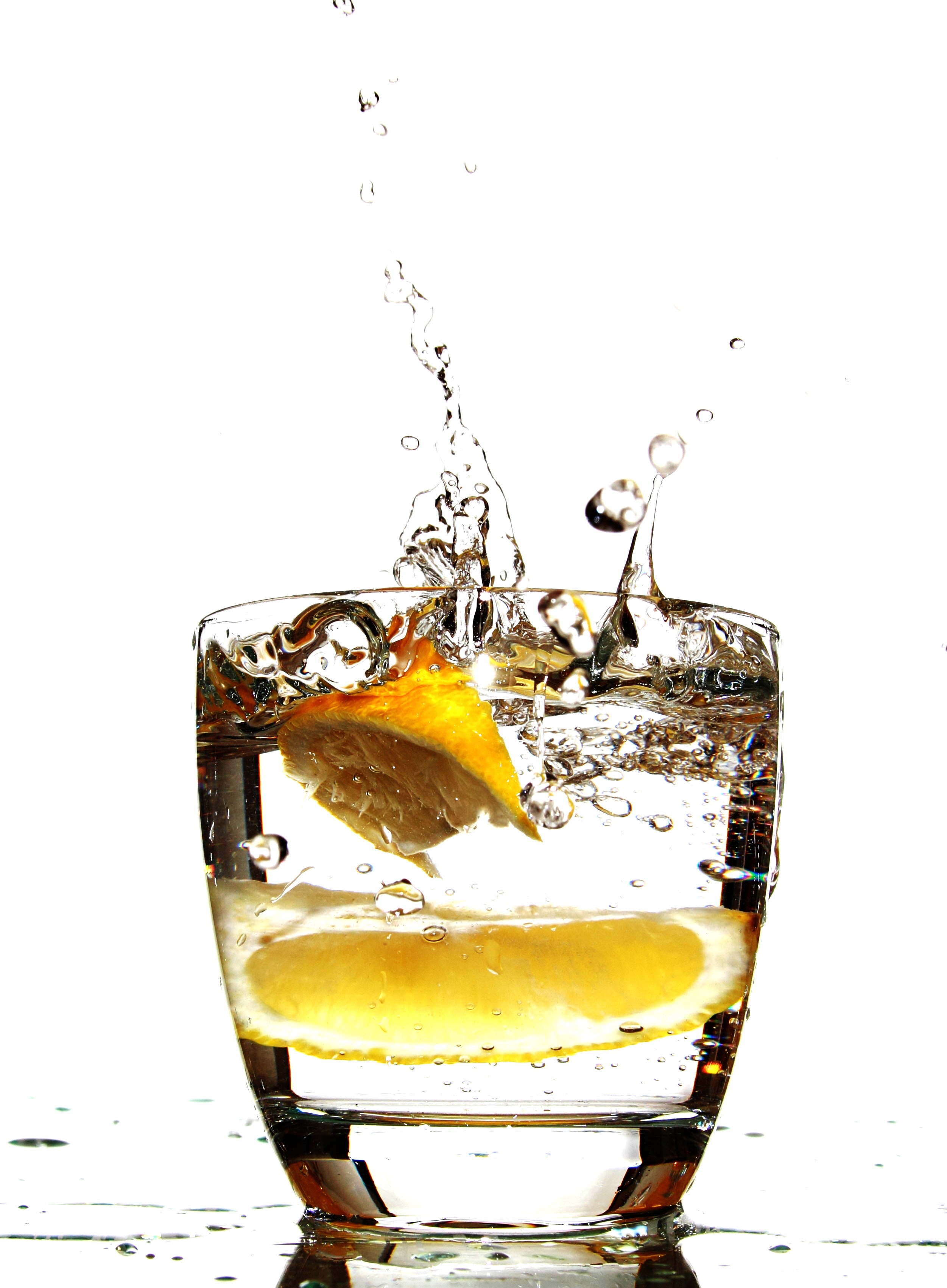
A woman in Florida, USA, nearly died in October 2019 after ingesting a drink with liquid nitrogen. Ms. Stacey Wagers saw a waiter pour a liquid onto another patron's dessert, giving it a neat "smoky" effect. The waiter poured some of the same liquid into Wager's glass of water after her friend commented on the cool effect. Wager became immediately and violently ill, resulting in her gall bladder and parts of her stomach being removed. Read more...
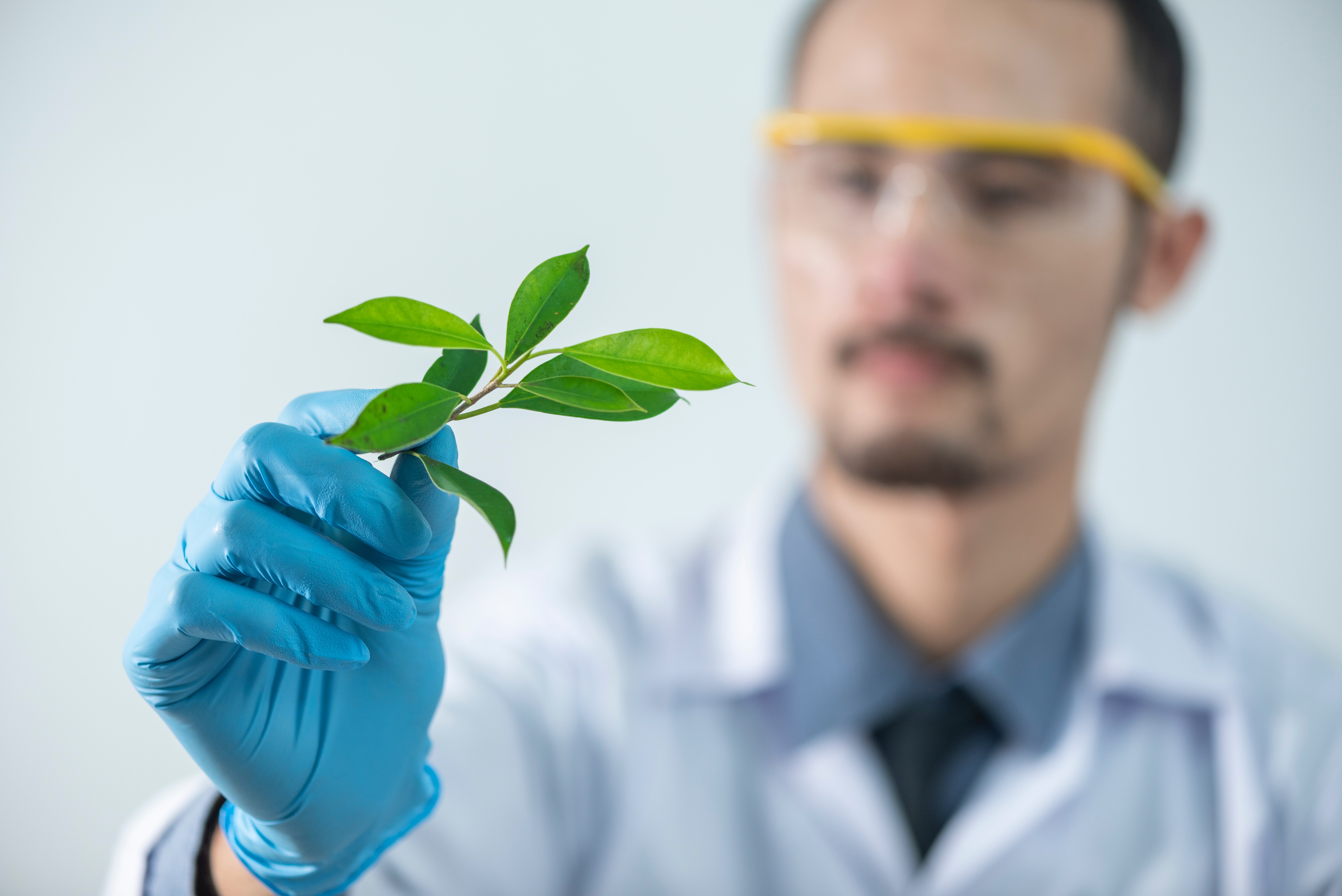 CRYO2019 Plenary speakers Bart Panis and Oliver Ryder have featured in a recent news article by Katharine Gammon, a freelance science writer in California, who attended CRYO2019 as our guest. Ryder, the director of the "Frozen Zoo", presented on the continuous efforts made by the San Diego zoo to cryopreserve genetic material from over 10,000 species. Panis, a senior researcher with the Leuven, Bioversity International, discussed with Gammon the massive ice cave-turned-seed bank, Svalbard seed vault, with its 820,000 seed samples and the challenges surrounding flora cryopreservation. Read the full article HERE.
CRYO2019 Plenary speakers Bart Panis and Oliver Ryder have featured in a recent news article by Katharine Gammon, a freelance science writer in California, who attended CRYO2019 as our guest. Ryder, the director of the "Frozen Zoo", presented on the continuous efforts made by the San Diego zoo to cryopreserve genetic material from over 10,000 species. Panis, a senior researcher with the Leuven, Bioversity International, discussed with Gammon the massive ice cave-turned-seed bank, Svalbard seed vault, with its 820,000 seed samples and the challenges surrounding flora cryopreservation. Read the full article HERE.
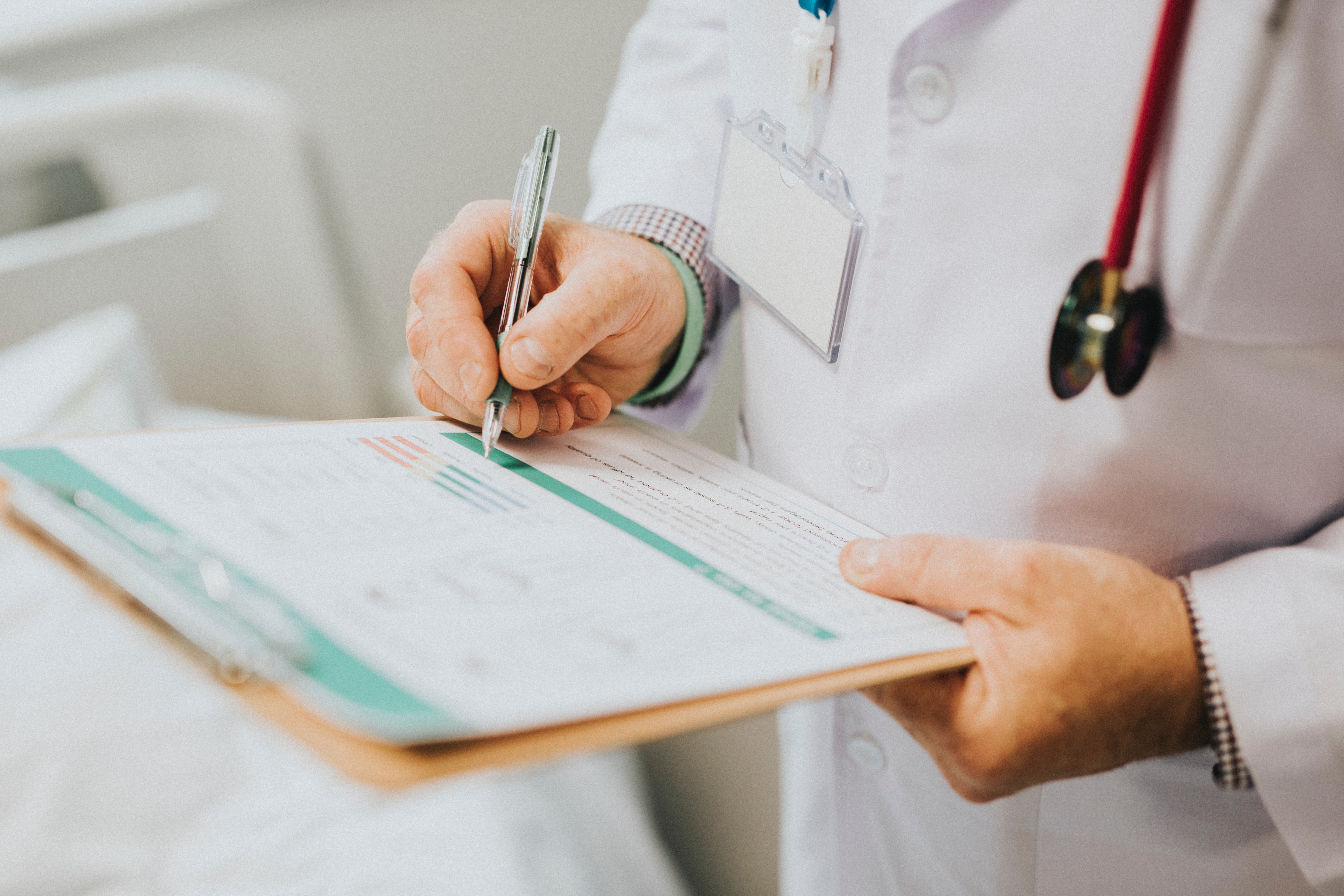 Researchers from Massachusetts General Hospital and Harvard Medical School began supercooling rat livers 5 years ago with the intention of being able to preserve human organs for more than the current 9 hours. Society for Cryobiology members, Reinier de Vries and Korkut Uygun, contributed to the research team's current experiment on human livers that were unsuitable for transplants. The research team's ultimate goal is a true organ bank where organs can be preserved for years instead of hours or days and in essence, eliminate the hundreds of deaths that occur while patients wait for a suitable transplant. Read the full article HERE.
Researchers from Massachusetts General Hospital and Harvard Medical School began supercooling rat livers 5 years ago with the intention of being able to preserve human organs for more than the current 9 hours. Society for Cryobiology members, Reinier de Vries and Korkut Uygun, contributed to the research team's current experiment on human livers that were unsuitable for transplants. The research team's ultimate goal is a true organ bank where organs can be preserved for years instead of hours or days and in essence, eliminate the hundreds of deaths that occur while patients wait for a suitable transplant. Read the full article HERE.
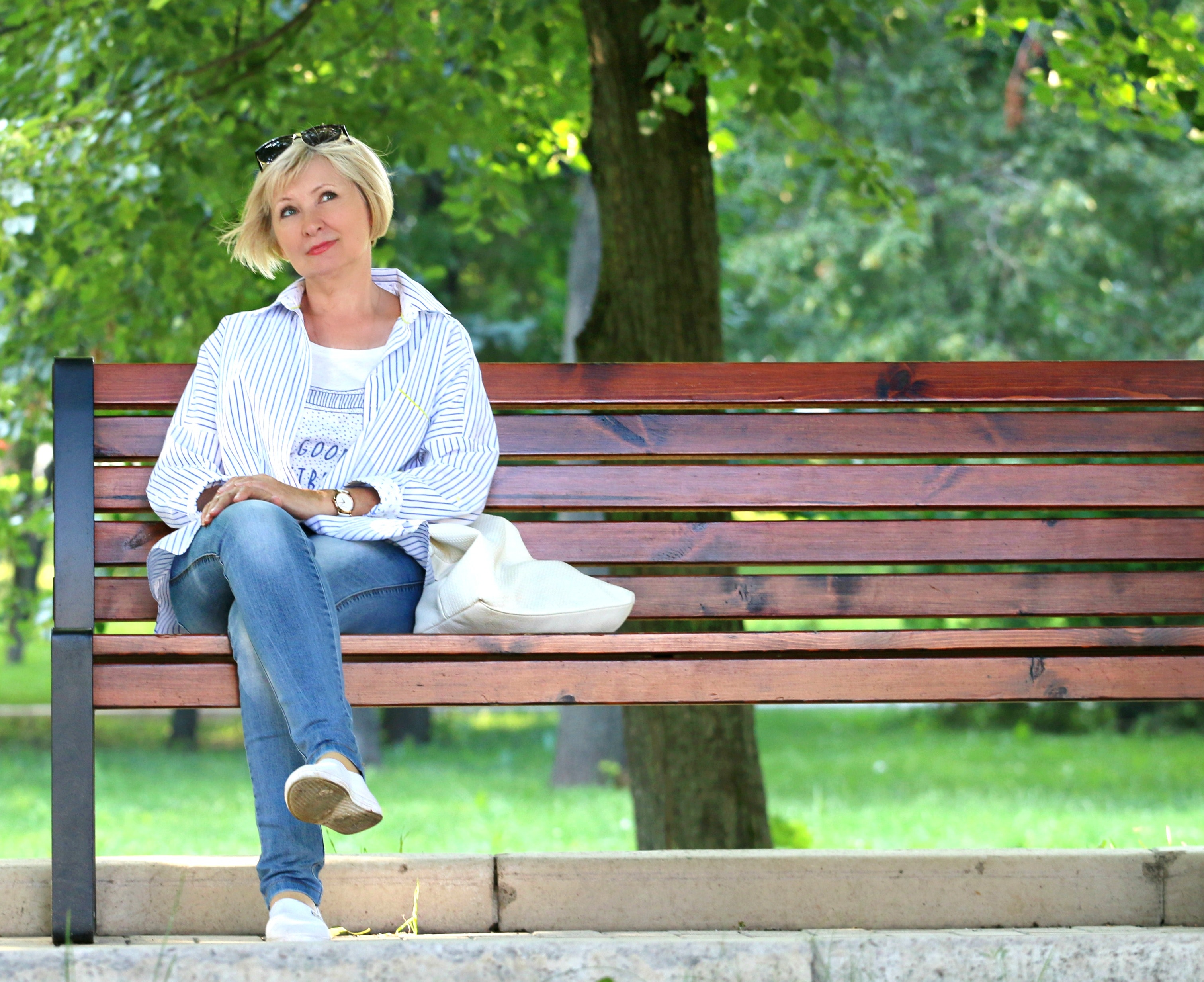 Springboarding off the research done to preserve female's fertility before cancer treatments, researchers are now applying the same techniques to women in an attempt to postpone menopause. Researchers remove an ovarian tissue sample, use cryopreservation to preserve the pre-menopausal tissue, and then, even decades later, thaw and graft the tissue back onto the body. This tissue can then restore the reduced hormones and delay menopause. Tissue samples from nine women are being preserved, ready to be used just as the women begin to enter menopause.
Springboarding off the research done to preserve female's fertility before cancer treatments, researchers are now applying the same techniques to women in an attempt to postpone menopause. Researchers remove an ovarian tissue sample, use cryopreservation to preserve the pre-menopausal tissue, and then, even decades later, thaw and graft the tissue back onto the body. This tissue can then restore the reduced hormones and delay menopause. Tissue samples from nine women are being preserved, ready to be used just as the women begin to enter menopause.
Of course the younger and healthier the original tissue sample, the more effective it will be in delaying menopause. A tissue sample from a 40-year-old woman is expected to delay menopause by only 5 years, but future women in their 20s may be able to postpone menopause or even extend their fertility window by 20 to 30 years. READ MORE...
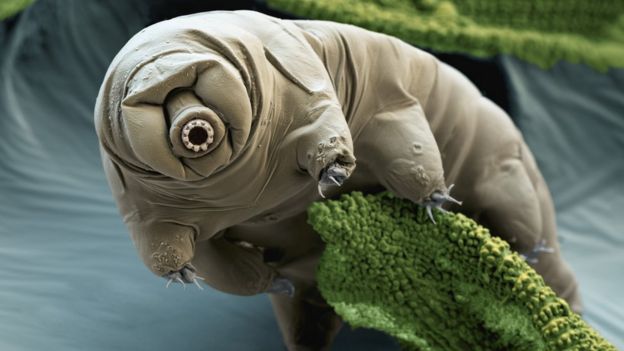 You shouldn't expect any Lunar base construction yet; the first know lunar "colonists" are Tardigrades. These microscopic "water bears" can survive in nearly all of Earth's extreme environmental conditions - boiling, freezing, high pressure, and vacuum - everything except ultraviolet radiation.
You shouldn't expect any Lunar base construction yet; the first know lunar "colonists" are Tardigrades. These microscopic "water bears" can survive in nearly all of Earth's extreme environmental conditions - boiling, freezing, high pressure, and vacuum - everything except ultraviolet radiation. 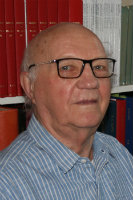 It is with sadness we have to pass on news of the recent death of Prof. David Pegg at his home in York, United Kingdom on Saturday August 3, 2019. He was 86 years old.
It is with sadness we have to pass on news of the recent death of Prof. David Pegg at his home in York, United Kingdom on Saturday August 3, 2019. He was 86 years old.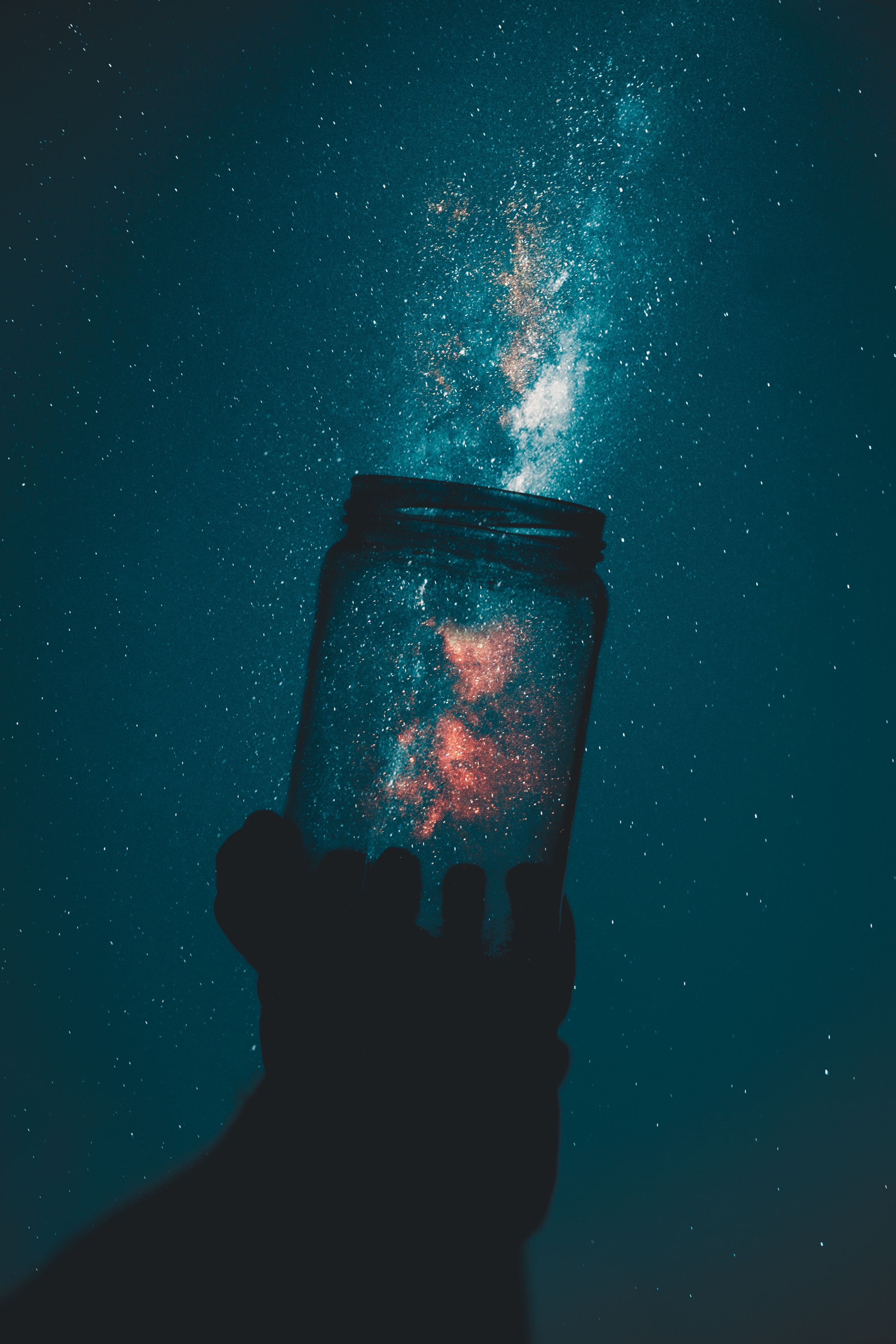 We don't have to worry about our planetary passports quite yet. As a species, we're still "light years" away from space babies, but the European Society of Human Reproduction and Embryology in Vienna presented research that frozen sperm samples can still be viable after being subject to microgravity conditions.
We don't have to worry about our planetary passports quite yet. As a species, we're still "light years" away from space babies, but the European Society of Human Reproduction and Embryology in Vienna presented research that frozen sperm samples can still be viable after being subject to microgravity conditions.
Montserrat Boada, director of an embryology laboratory at Dexeus Mujer, a women's health center in Barcelona, Spain and a team of researchers tested the effects of altered on sperm samples using aerial abcroatics. Passenger air flight is no comparison to the conditions these 10 sperm samples underwent which included at least 20 parabolic maneuvers that exposed the samples to space-like gravity and gravity forces two to three times more than experienced on Earth. Other obstacles to future space colonization would include conception, the effect of microgravity on respiratory and circular systems, and the unknown prenatal effect of zero-Gs. Read more HERE

Assemble Plus has opened its fourth call for access to infrastructure in Marine labs in Europe.
The Assemble plus consortium has opened again the Transnational access competitive calls where any scientist can apply with a good, short idea and the A+ covers the expenses (travel, accommodation, research, equipment fees) of that project for 1 month in any of the marine stations in the consortium. Application is quite straightforward and very in touch with the team on the selected destination.
Visit the Assemble Plus website for more information about how to apply.
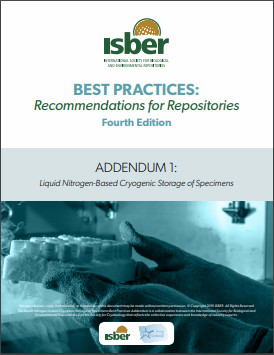 The Society for Cryobiology, in partnership with the ISBER, is pleased to announce the launch of the Liquid Nitrogen-Based Cryogenic Storage of Specimens Best Practices Addendum to the ISBER Best Practices 4th Edition. "The new Liquid Nitrogen Best Practices Addendum will be a go-to resource for the growing number of repositories being asked to store cellular products being used in adoptive therapy research and manufacturing. We are grateful to the team of contributors who are world leaders, who have shared their expertise in building and managing facilities to support collections requiring sub-Tg (glass transition, -135°C) storage,” said David Lewandowski, President of ISBER.
The Society for Cryobiology, in partnership with the ISBER, is pleased to announce the launch of the Liquid Nitrogen-Based Cryogenic Storage of Specimens Best Practices Addendum to the ISBER Best Practices 4th Edition. "The new Liquid Nitrogen Best Practices Addendum will be a go-to resource for the growing number of repositories being asked to store cellular products being used in adoptive therapy research and manufacturing. We are grateful to the team of contributors who are world leaders, who have shared their expertise in building and managing facilities to support collections requiring sub-Tg (glass transition, -135°C) storage,” said David Lewandowski, President of ISBER.
The new ISBER Addendum and the ISBER Best Practices 4th Edition is available to download now.
 The Royan Institute held their third cryobiology and biobanking symposium on February 27, 2019, in Tehran, Iran. The Royan Institute was established in 1991 as a public non-profit research institute for reproductive biomedicine and infertility treatments. Today Royan consists of three research institutes:
The Royan Institute held their third cryobiology and biobanking symposium on February 27, 2019, in Tehran, Iran. The Royan Institute was established in 1991 as a public non-profit research institute for reproductive biomedicine and infertility treatments. Today Royan consists of three research institutes:
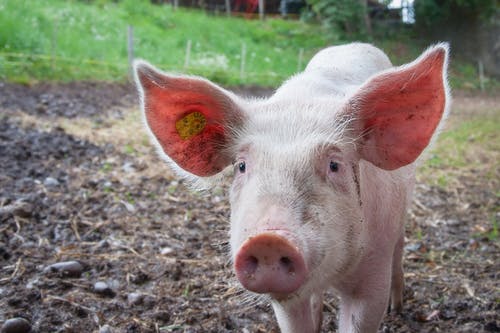 Yale scientists managed to partially revive the brains of decapitated pigs by flooding the organ with oxygen-rich artificial blood. These researchers are quick to assure the public the brains did not show any signs of consciousness; instead, their experiment showed the possibility of limiting or reversing long term brain damage as blood stops circulating. The ability to restore cell function to the brain and slow the decay process in pig brains deceased 4 to 6 hours has the potential for extraordinary applications for stroke or Alzheimer victims. The entire article can be read HERE.
Yale scientists managed to partially revive the brains of decapitated pigs by flooding the organ with oxygen-rich artificial blood. These researchers are quick to assure the public the brains did not show any signs of consciousness; instead, their experiment showed the possibility of limiting or reversing long term brain damage as blood stops circulating. The ability to restore cell function to the brain and slow the decay process in pig brains deceased 4 to 6 hours has the potential for extraordinary applications for stroke or Alzheimer victims. The entire article can be read HERE.
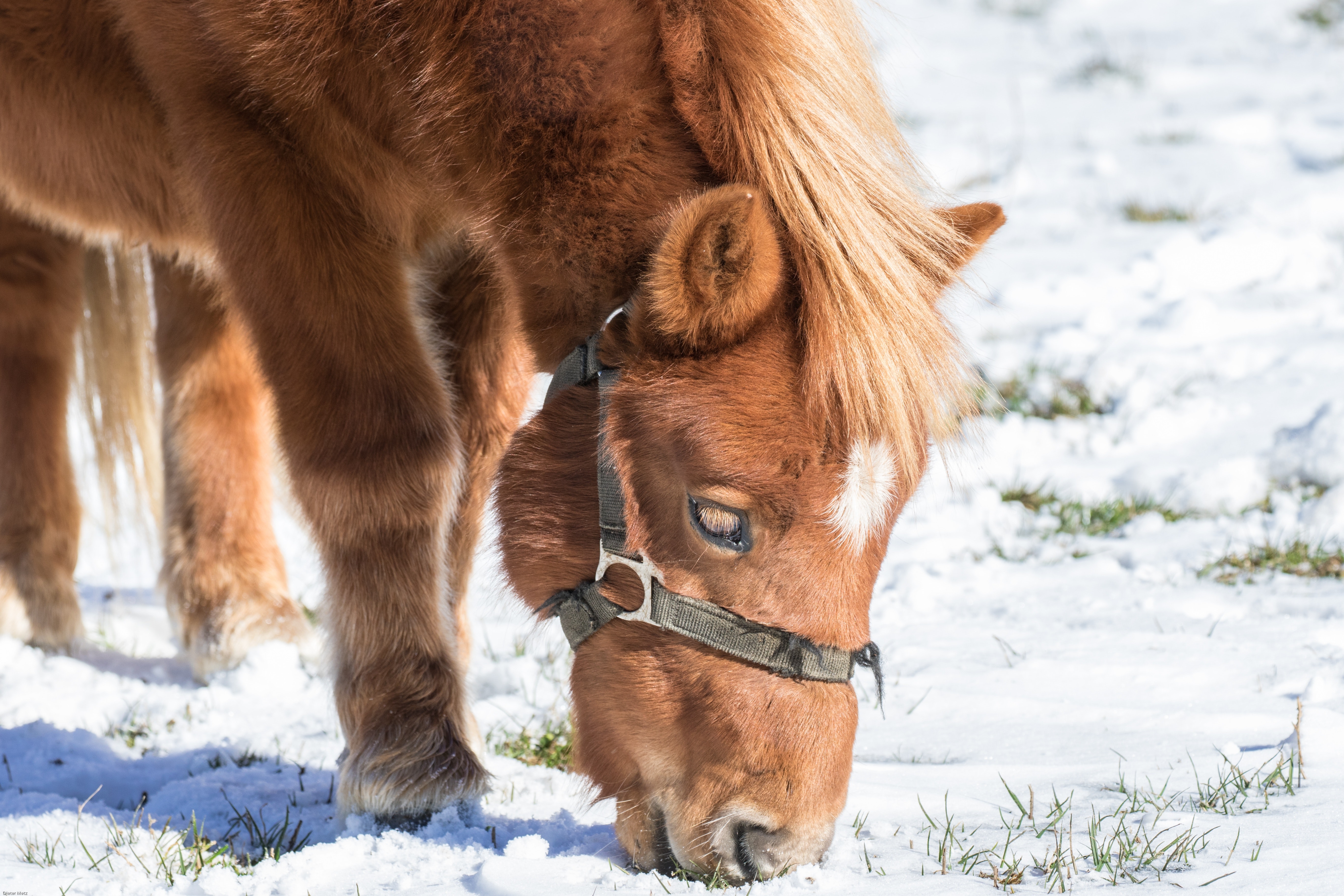 Russian and South Korean researchers have extracted liquid blood and urine samples from a 42,000-year-old foal preserved by the Siberian permafrost. Upon discovery in August 2018, the one to two-week-old foal showed no external damage with skin, tail, and hooves still intact with hair still present on portions of the body. The scientist's lofty goal is to clone the horse and revive the extinct Lenskaya horse breed to which this foal belongs. A viable DNA sample from the blood is required for any hope of cloning and the scientists currently have 20 unviable blood samples. However, they are confident and are actively searching for a suitable surrogate mare in anticipation of a successful clone. The full article can be found HERE.
Russian and South Korean researchers have extracted liquid blood and urine samples from a 42,000-year-old foal preserved by the Siberian permafrost. Upon discovery in August 2018, the one to two-week-old foal showed no external damage with skin, tail, and hooves still intact with hair still present on portions of the body. The scientist's lofty goal is to clone the horse and revive the extinct Lenskaya horse breed to which this foal belongs. A viable DNA sample from the blood is required for any hope of cloning and the scientists currently have 20 unviable blood samples. However, they are confident and are actively searching for a suitable surrogate mare in anticipation of a successful clone. The full article can be found HERE.
 The Society for Cryobiology is pleased to announce that we have employed a new administrator - Amelia Hanson. She has an education in chemical engineering and experience in the Houston oil & gas industry. A native Texan, Amelia now lives in New Zealand as a technical writer and website designer. Working directly with the society's Executive Director, Nicole Evans, Amelia assumed the position of administrator February 27th, 2019. You can contact her at [email protected].
The Society for Cryobiology is pleased to announce that we have employed a new administrator - Amelia Hanson. She has an education in chemical engineering and experience in the Houston oil & gas industry. A native Texan, Amelia now lives in New Zealand as a technical writer and website designer. Working directly with the society's Executive Director, Nicole Evans, Amelia assumed the position of administrator February 27th, 2019. You can contact her at [email protected].
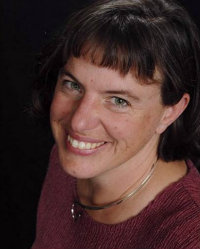 Gayle Volk, a CRYO2019 Program Committee Track Co-Chair for Plant Cryobiotechnology, has recently been in the news about a study into heritage apple cultivars in Wyoming, USA. Samples from Heritage apples, planted in the 1800s, were collected from nearly a hundred farms, orchards, or homesteads and are being studied to determine existing traits that allow these trees to survive, even thrive, in the harsh, cold Wyoming climate.
Gayle Volk, a CRYO2019 Program Committee Track Co-Chair for Plant Cryobiotechnology, has recently been in the news about a study into heritage apple cultivars in Wyoming, USA. Samples from Heritage apples, planted in the 1800s, were collected from nearly a hundred farms, orchards, or homesteads and are being studied to determine existing traits that allow these trees to survive, even thrive, in the harsh, cold Wyoming climate.
The original article can be found HERE.
 Testicle tissue samples from the rhesus macaques are being used in new research to preserve the fertility of preadolescent boys with cancer. Kyle Orwig from the University of Pittsburgh School of Medicine and his team, removed testicle tissue from 5 prepubescent monkeys. After the monkeys reached sexual maturity, the tissue was grafted back onto the monkey's back and scrotum and within 12 months all 5 monkeys were producing testosterone and sperm. The team used the sperm from one of the monkeys to successfully impregnate a female.
Testicle tissue samples from the rhesus macaques are being used in new research to preserve the fertility of preadolescent boys with cancer. Kyle Orwig from the University of Pittsburgh School of Medicine and his team, removed testicle tissue from 5 prepubescent monkeys. After the monkeys reached sexual maturity, the tissue was grafted back onto the monkey's back and scrotum and within 12 months all 5 monkeys were producing testosterone and sperm. The team used the sperm from one of the monkeys to successfully impregnate a female.
Prior to puberty, young boys don't develop sperm that can be preserved in the event of infertility, a common side effect of chemotherapy and radiation. By taking small testicle samples of these young boys, researchers hope to be able to preserve the fertility of these future cancer survivors. The original article can be found HERE.
 University College London (UCL) and the Royal Free London Hospital have announced a new ovarian tissue bank to preserve the fertility of girls and women about to undergo treatment for cancer.
University College London (UCL) and the Royal Free London Hospital have announced a new ovarian tissue bank to preserve the fertility of girls and women about to undergo treatment for cancer.
The publically funded initiative will be led by UCL academic Dr. Paul Hardiman (UCL Institute of Women's Health) and consultant in obstetrics and gynaecology at the Royal Free Hospital in London, with consultation by Society for Cryobiology Fellow, Prof. Barry Fuller, head of research for the UCL Division of Surgery, and Prof. Mark Lowdell, UCL director of Cellular Therapeutics.
Worldwide there have been approximately 100 live births following ovarian tissue preservation and subsequent reimplantation on the remaining ovary or into the lining of the abdominal cavity.
Dr. Hardiman, tissue bank director, said: “We have modelled our protocols on how it is done at the Rigshospitalet, Copenhagen, one of the largest hospitals in Denmark, where they have been freezing human ovarian tissue since 1999. This is a well-established method in Europe, the US and Japan but the UK has lagged behind and patients often faced having to go abroad and pay to receive this treatment. At a time when patients need to concentrate on life-saving therapies this intervention needs to take place as quickly as possible.”
“What makes the Royal Free London so ideally suited to provide this service is that we have a unique mix of facilities and expertise in tissue freezing and cell therapy including Professor Barry Fuller, head of research for the UCL Division of Surgery and Interventional Science and Professor Mark Lowdell, director of Cellular Therapeutics. We are also a leading kidney and liver transplant centre and the principle UK centre for cell and tissue medicines which has helped facilitate approval from the Human Tissue Authority. We are very grateful for the support from the Royal Free Charity over the past seven years which funded Natalie Getreu*, a PhD student, who played an important role in enabling us to bring this to patients.”
*Society for Cryobiology student member, Natalie Getreu, presented her PhD research for the Ovarian Tissue Bank at CRYO2017 and CRYO2016.